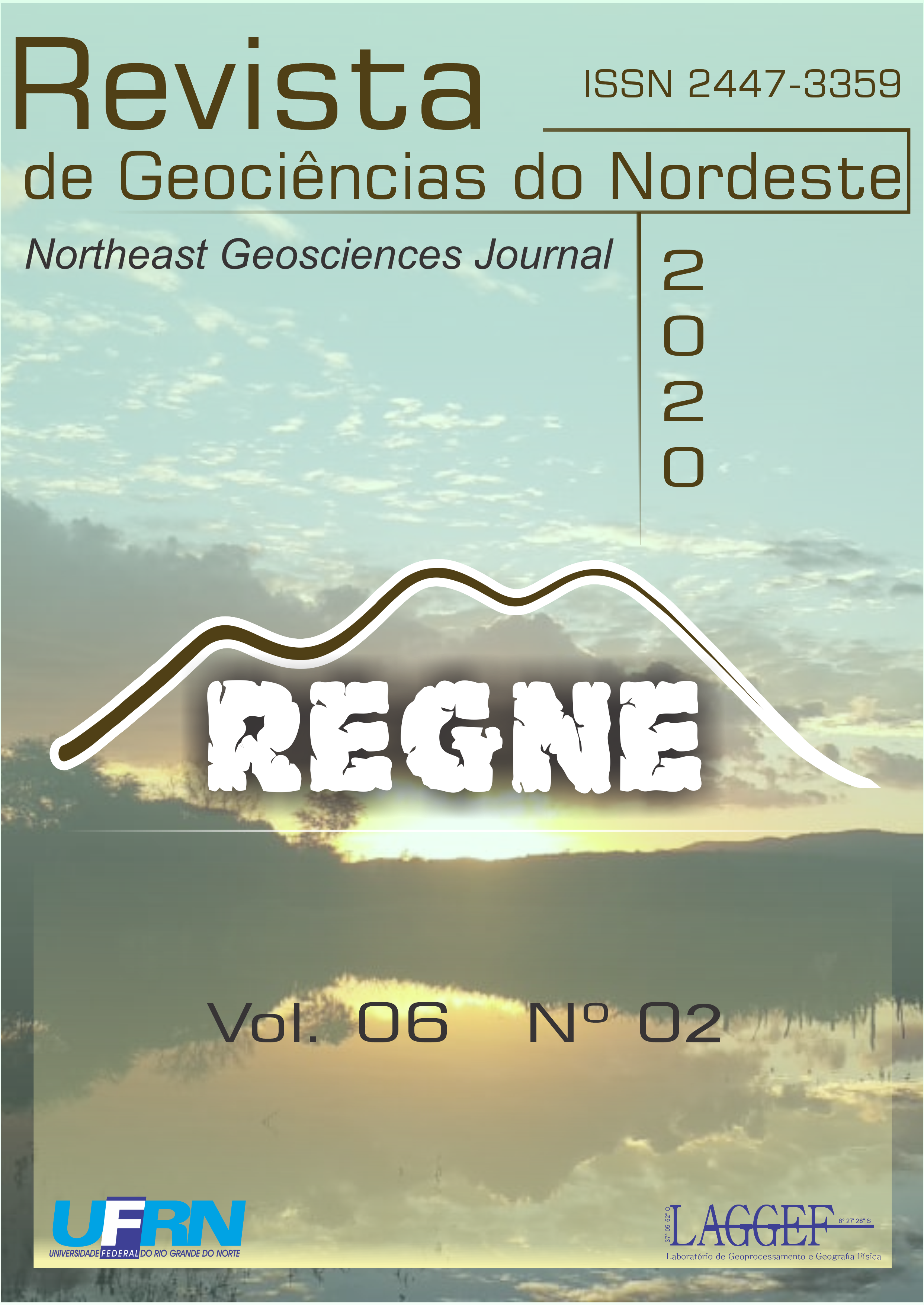HIDROCHEMISTRY CHARACTERIZATION OF ALLUVIUM AQUIFER FOR AGRICULTURAL USE
DOI:
https://doi.org/10.21680/2447-3359.2020v6n2ID19362Abstract
Due to strong climate irregularity of the Brazilian semiarid, the alluvium aquifers have been allowed irrigation of valleys, promoting socioeconomic importance for semiarid Brazilian stats. However, hydrochemistry studies are essential for integrated and sustainable management that decrease salinity risk of the irrigated soil. The present study aimed to characterize the hydrochemistry of an alluvium aquifer stretch on Curu River – State of Ceará, to identify limitations for irrigation. We collected samples in situ to physiochemistry analysis of groundwater in two field camping. The sampling occurred in 10 wells during august 2017 (final of the rainy period) and November 2017 (dry period). The description and analysis of data was realized by Piper’s diagram and Richard’s diagram for toxicity risk. The results showed a varied water classes on rainy and dry period, in this last there was predominance of mixed and chlorinated water classes. About the toxicity risk, water presented high salinity contend with salinization risk of soils, however it is possible utilized this water applying best managing practices in irrigation, controlling the infiltration and drainage factors. The study contributed to a better hydrochemistry knowledge of alluvium aquifers and agriculture use of this resource in semiarid regions.


 Português (Brasil)
Português (Brasil) English
English







